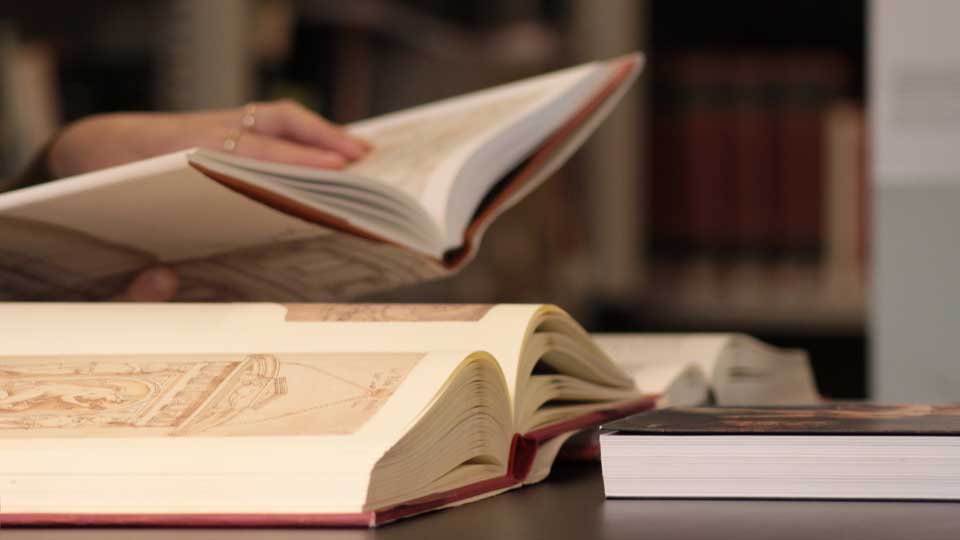The Tablinum fellowshipsCentro Internazionale di Studi di Architettura Andrea Palladio, Vicenza
Stiftung Bibliothek Werner Oechslin, Einsiedeln
Stiftung Bibliothek Werner Oechslin, Einsiedeln
Introduction

Two institutions with different cultural backgrounds but shared fundamental principles and objectives have joined forces to launch the TABLINUM initiative. The aim is to promote greater interest in rigorous research, and in particular research conducted on historical sources, by offering fellowships. The distinctive feature of the TABLINUM fellowships is that they provide the opportunity to get to know and benefit from both institutions, each with its own specific orientation and strengths.
The call for applications is based on the common conviction that the rigorous and thorough study of sources is still the key tool in humanistic research. This conviction is based on the hermeneutic tradition whereby multiple insights and knowledge are woven together and made all the more effective by a “necessary and instructive bond”. The idea that something new always emerges in serious research can be traced back to the first words in Aristotle’s Metaphysics. They express humanistic convictions based on history, which according to Karl Jaspers is always combined with a self-awareness of history, or knowing and self-awareness (Wissen and Selbstbewusstsein). They range from analogies according to Cusanus’ concept of “docta ignorantia” – “All who investigate judge the uncertain proportionally by comparing it to what is taken to be certain” (Omnes autem investigantes in comparatione presuppositi certi proportionabiliter incerticum iudicant) – to what Aby Warburg proposed as a complete “historical psychology of human expression” (historische Psychologie des menschlichen Ausdrucks). In the precise exploration of the smallest element lies the promise of understanding the whole. Gottfried Semper wanted to get to the source (!) as quickly as possible to be able to identify possible “laws” and “orders” “as they came into being and developed”. And Giulio Camillo sought to unite “particular matter” with “universal artifice” to form a “single body”. Adopting these methods ensures that the most exact and thorough research is not lost but remains alive, always open-ended and projected into the future.
On these grounds and with this aim, the TABLINUM scholarships have been created to enable researchers to make use of the two institutions and their particular disciplinary fields – in the Italian and German-speaking areas – in fruitful exchanges and comparisons.
Fellows will reside in Vicenza thanks to the support of FRIENDS OF PALLADIO and The Gladys Krieble Delmas Foundation.